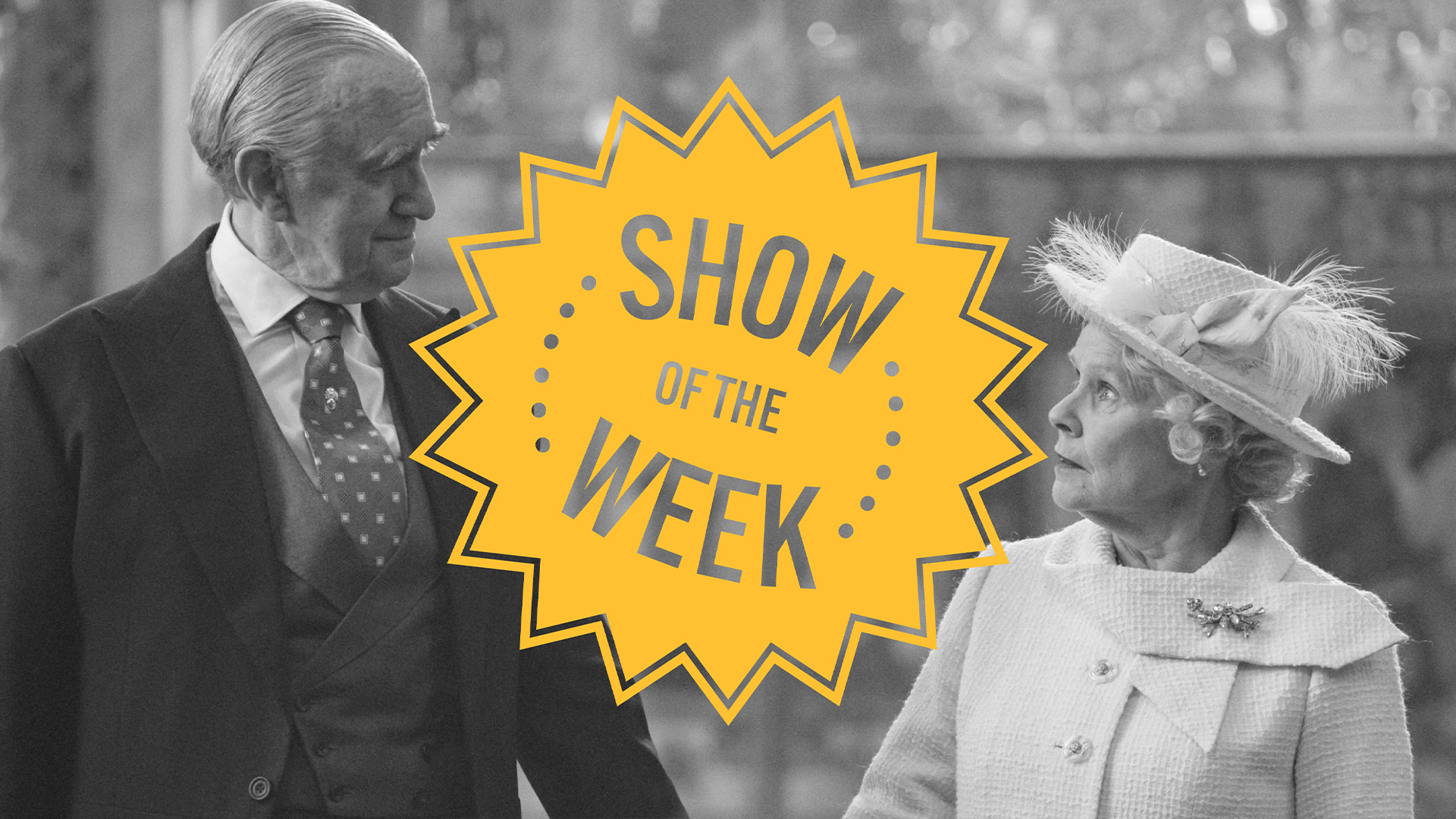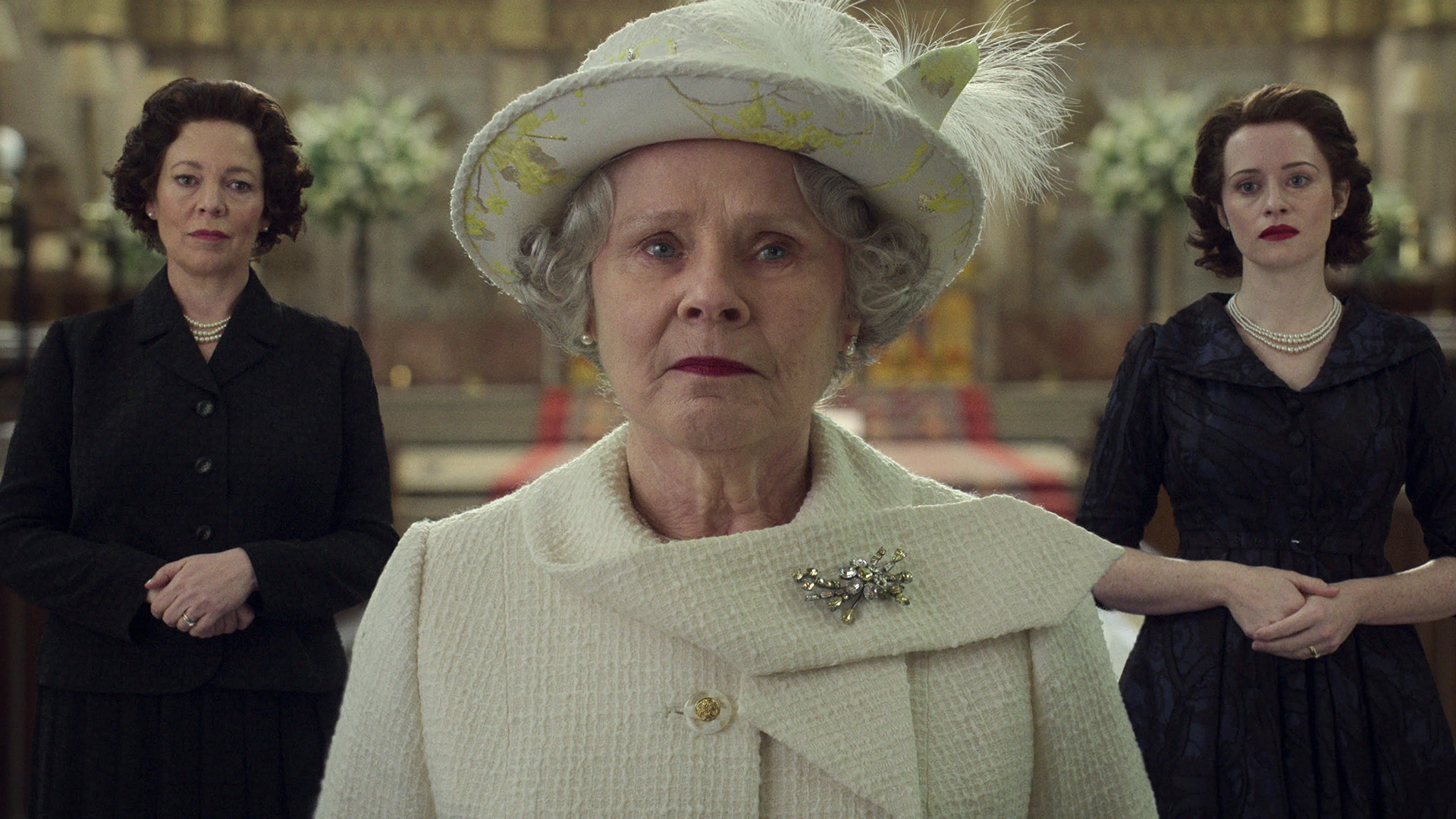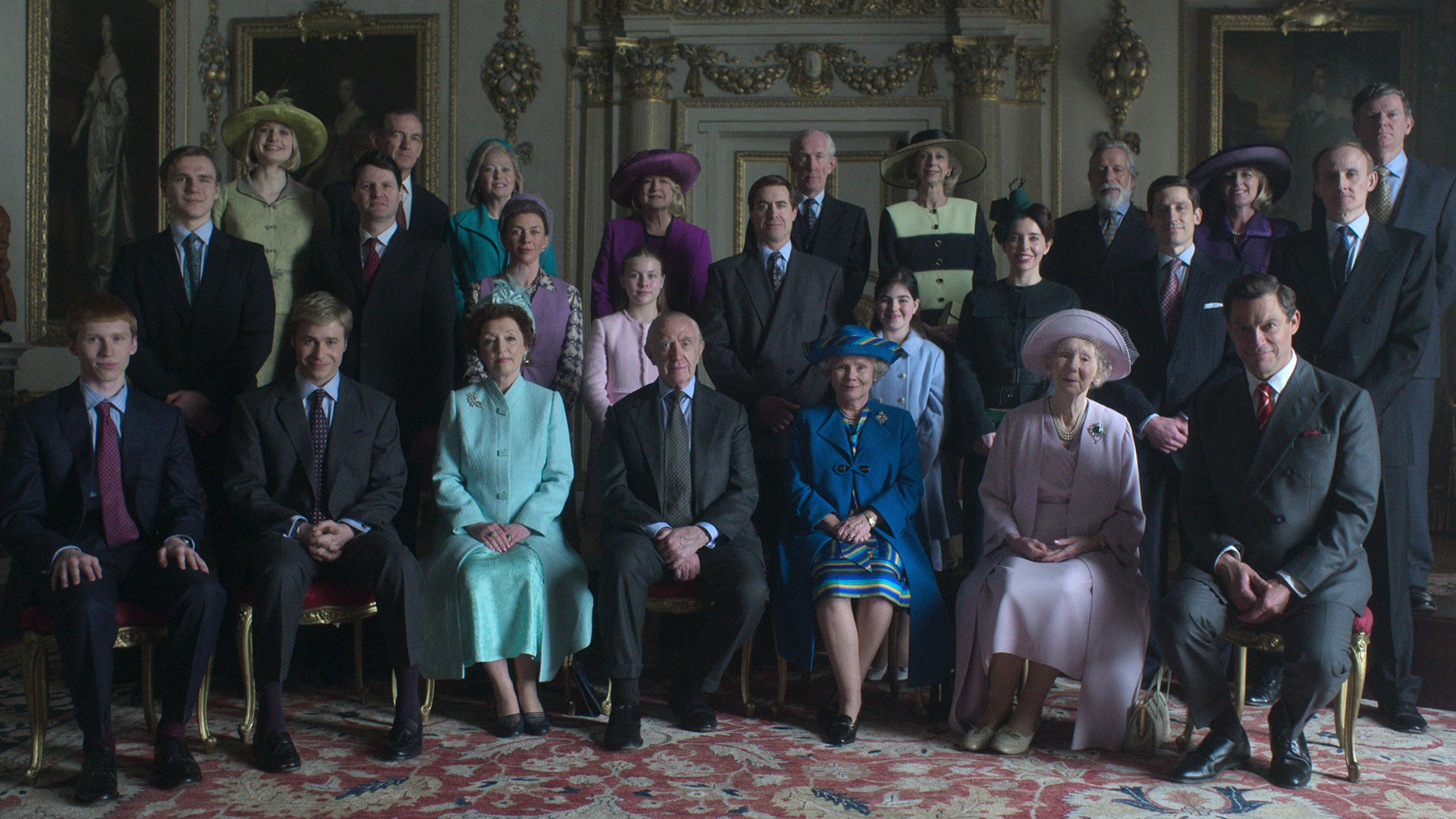The Crown’s final episodes are a victory and failure in equal, unintentional measure

We’re all drowning in content—so it’s time to highlight the best. In her column, published every Friday, critic Clarisse Loughrey recommends a new show to watch. This week: The final episodes of Netflix royal drama The Crown.
“The Crown doesn’t ask existential questions of itself,” the Queen’s private secretary (Andrew Havill) warns Her Majesty (Imelda Staunton) in the closing chapters of Netflix’s great, glimmering, monarchical affair. It’s a word of caution that may as well have been directed back at the show’s creator, Peter Morgan, who spends the final six episodes of the series (released as a “part two” of the sixth season) attempting to draw some grand conclusion on the modern state of the Royal Family.
It’s a victory and a failure in equal, unintentional measure—yet what really permeates this season, at the end of it all, is a sense of profound delusion. I, as the Queen dreams of Tony Blair (Bertie Carvel) ascended to the throne, to a schoolboy choir covering D:Ream’s Things Can Only Get Better, while William (Ed McVey) and Kate’s (Meg Bellamy) St Andrews romance is preceded by a coincidental, fatalistic run-in three years earlier, on a random London street.
Yet, I’m fascinated by The Crown and the way it so fervently believes it’s taken the temperature of the nation, while simultaneously tipping its hat to royalist-minded Americans. While its earlier seasons could rely on post-war stoicism or the diamond-encrusted tension of Charles and Diana’s marriage, these more modern storylines have had to face up to a rather uncomfortable truth—the mind of the British public now lies torn between traditionalism and resentment. And Morgan’s attempts to cater to both throw up some fascinating results.
Despite the royal family’s reportedly icy relationship with the series, there’s a real lack of subtlety to the PR work The Crown seems willing to do for them, specifically in light of the allegations that surfaced around the treatment of Meghan, Duchess of Sussex. There’s a flashback to a young Elizabeth, slipping out of the palace on VE Day to dance the jitterbug with Black American soldiers. When the show inevitably, and awkwardly, covers the incident in which Prince Harry (Luther Ford) wore a Nazi uniform to a costume party in 2005, it frames Prince William as quietly perturbed by the idea—despite Harry’s own memoirs claiming that both William and Kate “howled with laughter” and spurred him on.

And, yet, the finale repeatedly concedes that the monarchy is a withering institution, perhaps only upheld so long into the modern era by the calm and comfort Queen Elizabeth seemed to instil in people. She’s given an odd victory in one episode, where rising anti-royalist sentiment in the polls leads her to consult Blair on the possibility of reformation. He wonders whether, perhaps, she could trim a few of the palace’s extravagances—is a Grand Falconer truly necessary to the daily management of the household? The royal family scoff at the idea, and the Queen finds comfort at the Women’s Institute, where memories of her war efforts are still held dear. Blair, then, supposedly embarrasses himself in front of the WI by daring to bring up politics. “There’s no such thing as too royal,” the Queen concludes, a little smugly. I’m not sure if we’re intended to agree with her.

The Crown’s final episodes do, at least, remind us of what this show has always been most valuable for: a cavalcade of sublime, British talent, surrounded by lavishness. And nothing quite epitomises that argument more than the best episode of the season, which tracks the final days of Princess Margaret (Lesley Manville). It’s a beautiful piece of work that genuinely humanises the royals in a way that all that manufactured PR work never could, by acknowledging that no amount of privilege can save a soul from the fear and regret that creep in with ailing health. Manville douses her tragedy in fire, and there’s nothing quite like the way she so defiantly delivers the line: “I’d rather die than do exercise”. If The Crown was only ever good that kind of drama—that I can live with.
















